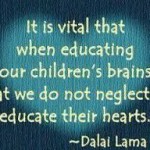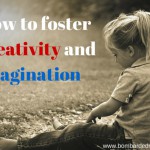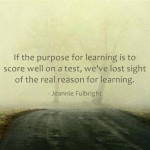Why is it OK in 2014 to have the same process of education, same teaching models and same practice as was invented in the 18th Century. My grandmother is 87 and her educational experience closely resembles that of my 7 year olds. There is some shift in children not having empty head to fill and the idea of student lead learning but the entire public education system is being challenged. Sir Ken Robinson is an author and educator. He is showing the world that we need to change the education paradigm. Spend the next 11 minutes watching this very engaging clip on why the education paradigm needs to change.
http://www.ted.com/talks/ken_robinson_changing_education_paradigms
Ken argues that the current education model is based on a production line mentality. There are factory lines with kids moving from Kindergarten to Year 12, spending six hours a day, 5 days a week in an institution – the bell rings, single subjects are taught, education is grouped by age. It is not reflecting the ‘real’ world. When we start a job, we are not put with the 19 year olds in the office and have to spend every minute with them, we are grouped within our team because that is how learning happens – collaboratively. We are not herded to lunch by a bell, nor are we just allowed to have one single subject for 40 minutes at a time.
Ken argues that the public education system was set up in the 18th century as a revolutionary idea to educate all children, paid via the taxation system – not a bad idea. However, it was to be based on the intellectual model of the mind. Those with academic ability were smart and those with other abilities were not smart. Instantly children who were flourishing artists, creators or dancers were judged. It still is largely based on the intellectual model.
Right now, we are in the most intense period of the information age. There are a myriad of devices that distract us from our every day and most of our jobs are based on using a device were we race from one screen to the next checking emails, texts and social media. With the advent of the smart phone, we are now contactable all day, every day and weekends are starting to pale into insignificance. Distraction is all around. Yet, when our students can’t sit in the classroom without distraction we think they have ADHD and medicate them. They are not allowed to be distracted and must be taught to be ‘good working students’. This is no longer concurrent with how we operate in society. Or is it?
Standardised testing (NAPLAN in Australia) is another medium to categorise children and schools as academic or not academic, smart and not smart and start judging. This further heightens the education system being based on the intellectual model of the mind with disregard for any other model. Flowing against the tide, Ken has serious merit on the way our children are taught and has made us think about the best way. Is it via a production line? Would it be better as a one on one education? Is there merit for multi-age classrooms? Ofcourse, reading, writing and maths are essential but how about developing the rest of the skills based on your child? How do we cater to the ‘smart’ kids and ‘not smart’ kids and still preserve innovation, creativity and passion?
Is it time to change the paradigm of education in Australia?







